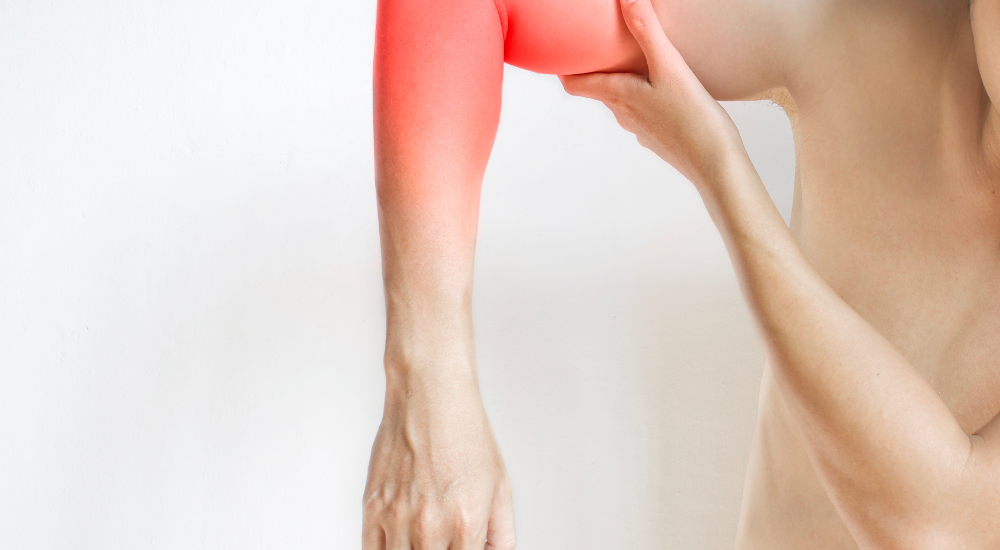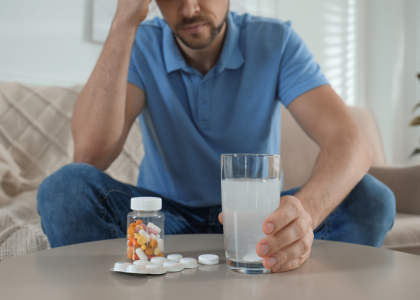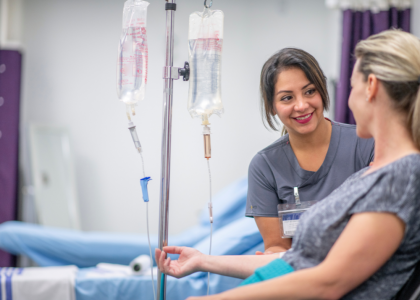Yes, dehydration can cause joint and muscle pain as it reduces the lubrication in joints and can lead to muscle cramps. Proper hydration is crucial for maintaining joint and muscle function.
Dehydration has a significant impact on your body’s overall health, including your joints and muscles. Joints rely on adequate hydration to maintain the cushioning cartilage between bones, and muscles need fluid balance to function correctly. Without enough water, your body struggles to perform these essential tasks, potentially leading to discomfort and pain in these areas.
Keeping up with your daily water intake is vital for joint health and muscle performance. Ensuring you drink enough fluids can help prevent the aches and pains associated with dehydration, supporting your body’s ability to move and function optimally. Remember, consistent hydration is key to maintaining a healthy musculoskeletal system.
The Relationship Between Dehydration And Joint/muscle Pain
Many people wonder if not drinking enough water can cause joint and muscle pain. The answer is yes. Dehydration affects how our joints and muscles work. Let’s look at how not getting enough water leads to pain in these areas.
Dehydration And Its Effects On The Body
Dehydration happens when we don’t drink enough water. Our body needs water to work well. Without it, many problems start. Here are some effects of not drinking enough water:
- Less blood volume: Water makes up a big part of our blood. Less water means less blood. This makes it harder for oxygen and nutrients to reach our body parts.
- Reduced flexibility: Water keeps our tissues and cartilage soft. Without enough, they get dry and can’t move smoothly.
- Increased toxicity: Water helps remove waste. Without it, toxins build up and can cause pain.
These problems show how important water is for our body to work right.
The Connection Between Dehydration And Joint/muscle Pain
Now, let’s connect dehydration to joint and muscle pain. Here’s how not drinking enough water leads to discomfort:
- Less joint lubrication: Joints need fluid to move without pain. Dehydration reduces this fluid, causing pain.
- Less muscle efficiency: Muscles also need water to work well. Without it, they get tired and sore faster.
- Increased inflammation: Dehydration can cause inflammation. This makes joints and muscles hurt more.
Drinking enough water helps keep joints and muscles happy and pain-free. Remember to drink water throughout the day to avoid these problems.
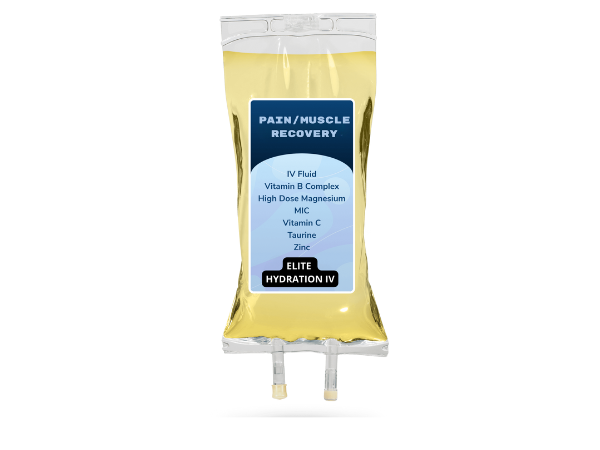
IV Therapy for Muscle Recovery
The benefits of IV Therapy for Muscle Recovery are vast and impactful, making it a preferred choice for many.
Symptoms Of Dehydration
Many people wonder if not drinking enough water can cause pain in joints and muscles. The answer is yes, it can. Let’s talk about symptoms of dehydration and how they relate to pain.
Recognizing Dehydration In The Body
Knowing when your body lacks water is key. Here are signs to watch for:
- Thirst: Feeling thirsty is the first sign.
- Dry Mouth: Your mouth feels dry and sticky.
- Tiredness: You might feel sleepy or sluggish.
- Less Pee: Going to the bathroom less than usual.
- Dark Pee: Your pee is darker than normal.
- Headaches: You might have a headache.
- Dizziness: Feeling light-headed or dizzy.
These signs help us know when to drink more water. It’s important for staying healthy and avoiding pain.
Impact Of Dehydration On Joint And Muscle Health
Not drinking enough water affects our joints and muscles. Here’s why:
- Lubrication: Joints need water to stay smooth and move easily.
- Nutrient Supply: Muscles need water to get nutrients.
- Waste Removal: Water helps remove waste from muscles.
Without enough water, joints can hurt because they rub together. Muscles can also ache and feel weak. Drinking plenty of water helps keep joints moving smoothly and muscles strong. It’s a simple way to feel better and stay active.
Scientific Studies And Findings
Many wonder if a lack of water can lead to joint and muscle pain. Scientific studies dive deep into this question. They look at how our bodies react when we don’t drink enough water. This research shows the important role hydration plays in keeping our muscles and joints working well.
Research On Dehydration And Joint/muscle Pain
Studies shed light on why we feel pain in our joints and muscles when we don’t drink enough water. Here’s what they found:
- Cartilage Health: Cartilage in joints needs water to stay healthy. Without it, cartilage can wear down more easily.
- Muscle Function: Muscles also need water to work right. Dehydration can lead to muscle fatigue and soreness.
One study tracked athletes during intense exercise. It showed that those who were not well-hydrated had more muscle cramps. Another study looked at how dehydration affects back pain. It found that not drinking enough water could make back pain worse.
| Aspect | Effect of Dehydration |
|---|---|
| Joint Cartilage | Increased wear and tear |
| Muscle Performance | Reduced strength and endurance |
| Pain Perception | Increased sensitivity to pain |
These studies make it clear that staying hydrated is key for our joint and muscle health.
Expert Opinions On The Link
Experts in health and sports medicine speak on the connection between dehydration and pain. They share insights based on their experience and knowledge. Here are some points they make:
- Fluids in the Body: Doctors note that our bodies need fluids to keep tissues lubricated. This includes the synovial fluid in joints.
- Recovery: Physical therapists say that proper hydration helps muscles recover faster after exercise.
A nutritionist specializing in sports performance explains that electrolytes, lost through sweat, are vital. They must be replaced to prevent cramps and injuries. A chiropractor mentions that spinal discs need water to stay plump and absorb shock effectively.
In summary, experts agree that water is essential for joint and muscle health. They warn that not drinking enough can lead to pain and injury.
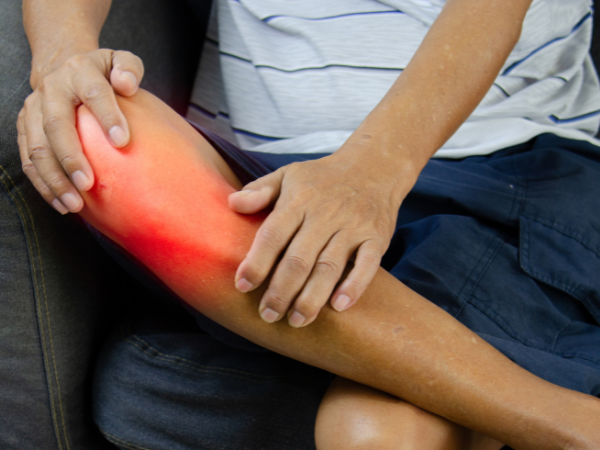
Preventing Dehydration-related Pain
Dehydration can lead to joint and muscle pain, making daily activities tough. Our bodies need water to keep joints lubricated and muscles working right. Without enough water, they struggle to do their jobs. To dodge the discomfort of dehydration, it’s key to keep our bodies well-watered. Let’s explore how to prevent dehydration-related pain with smart hydration habits.
Hydration Strategies For Joint And Muscle Health
Staying hydrated is vital for keeping joints supple and muscles happy. Here’s how to make sure you’re getting enough fluids:
- Drink water regularly: Don’t wait until you’re thirsty. Sip small amounts throughout the day to maintain a steady water level.
- Choose water-rich foods: Foods like cucumbers, oranges, and watermelons can boost your water intake.
- Monitor your urine color: Aim for light yellow. Dark urine often signals dehydration.
For those on the move or with busy schedules, consider these tips:
- Carry a water bottle: Keep it within reach to remind you to take a drink.
- Set reminders: Use your phone or watch to prompt you to hydrate.
Let’s look at a daily water intake table as an example:
Add more rows as needed
| Time | Activity | Water Intake |
|---|---|---|
| Morning | Wake-up | 1 glass |
| Mid-morning | Work/Study | 2 glasses |
| Lunch | Eating | 1 glass |
Remember: The key is consistency. Steady water intake helps maintain joint and muscle function.
Importance Of Electrolyte Balance
Water is great, but electrolytes are the unsung heroes in preventing dehydration pain. They’re minerals that help your body do its work. Think of them as the oil that keeps the engine running smoothly. Here’s why they matter:
- They regulate fluid levels: This helps your muscles and nerves work properly.
- They prevent cramps: A balance of electrolytes can keep those painful muscle cramps at bay.
- They aid in recovery: After exercise, electrolytes help your body bounce back.
To maintain electrolyte levels, consider these sources:
- Coconut water: A natural beverage packed with electrolytes.
- Sports drinks: They can replenish electrolytes but watch out for high sugar content.
- Electrolyte tablets: A convenient way to boost your intake without extra calories.
Remember, balance is key. Too much or too little can disrupt your body’s harmony. Aim for a mix of water and electrolyte-rich foods or drinks, especially after sweating it out. Your joints and muscles will thank you for it!
Hydration And Exercise Performance
Dehydration can lead to joint and muscle pain, especially during physical activity. Joints need lubrication to move smoothly, and muscles require fluids to maintain function. Lack of water in the body can lead to stiffness and discomfort. When we exercise, staying hydrated is key. It helps us keep up our performance and avoid pain.
Effects Of Hydration On Physical Performance
Water is essential for our bodies to perform well. Here’s how proper hydration helps during exercise:
- Regulates body temperature: Water helps to cool down our body when we sweat.
- Keeps joints lubricated: Hydrated joints are less prone to injuries.
- Maintains muscle elasticity: Well-hydrated muscles work better and hurt less.
Consider the following table showing the relation between hydration levels and exercise outcomes:
| Hydration Level | Energy Levels | Endurance | Risk of Injury |
|---|---|---|---|
| Well Hydrated | High | Increased | Low |
| Dehydrated | Low | Decreased | High |
Staying hydrated is crucial for top physical performance and preventing pain.
Avoiding Joint/muscle Pain During Exercise
To prevent joint and muscle pain, follow these hydration tips:
- Drink water regularly: Do not wait until you feel thirsty.
- Monitor your urine color: Aim for light yellow to ensure proper hydration.
- Balance electrolytes: Include drinks with electrolytes for intense workouts.
By keeping these points in mind, you can exercise with less risk of pain:
| Before Exercise | During Exercise | After Exercise |
|---|---|---|
| Drink plenty of water | Sip small amounts regularly | Replenish fluids lost |
Good hydration helps maintain peak muscle function and joint mobility. Drink up to stay pain-free!
Conclusion
Understanding the link between dehydration and discomfort in joints and muscles is crucial for maintaining optimal health. Ensuring adequate hydration can mitigate pain and improve joint function. Remember, water is a key component in keeping your body moving smoothly. Stay hydrated to keep pain at bay and support your musculoskeletal health.


